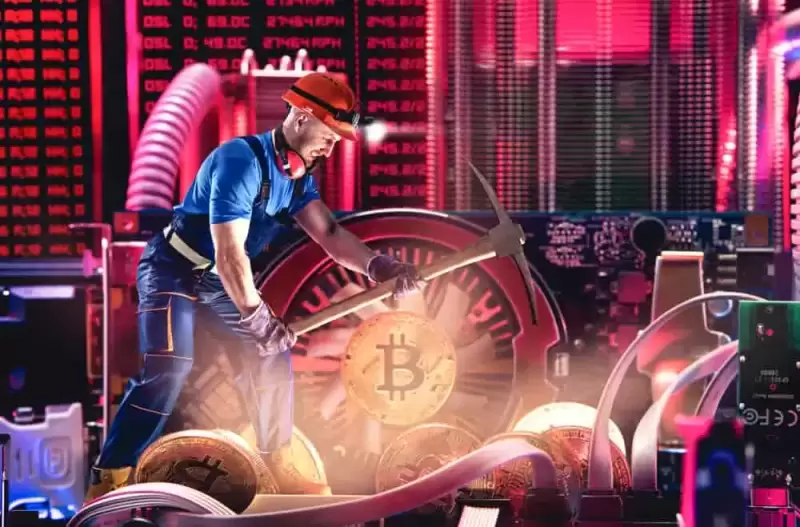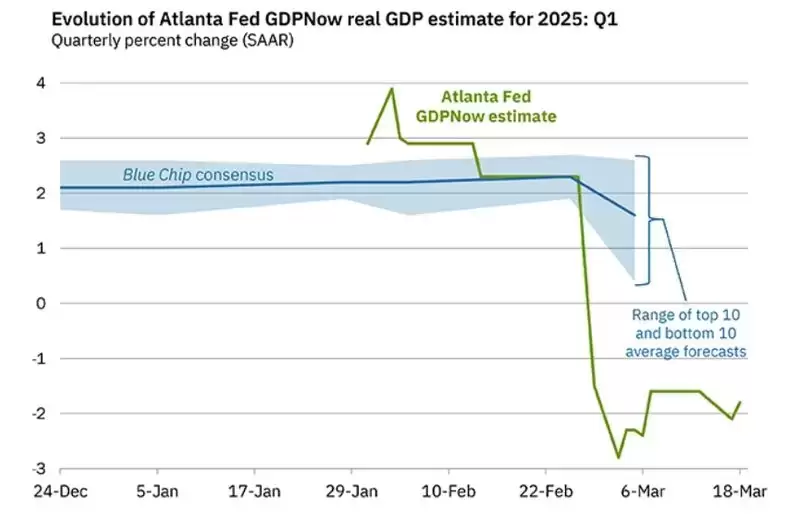 |
|
 |
|
 |
|
 |
|
 |
|
 |
|
 |
|
 |
|
 |
|
 |
|
 |
|
 |
|
 |
|
 |
|
 |
|
Cryptocurrency News Articles
Cardano (ADA) Price Prediction: Will ADA Coin Rise?
Apr 01, 2025 at 12:44 pm
Cardano is a fully decentralized blockchain platform designed to be faster and more efficient

Cardano is a fully decentralized blockchain platform designed to be faster and more efficient as a result of its use of the proof-of-stake protocol. Apart from that, the proof-of-work model is also less sustainable, and in a world that is increasingly concerned about the effects of climate change and looking to reduce carbon footprints, this characteristic is regarded as overwhelmingly positive. Much like Ethereum (the two blockchains share a co-creator), Cardano’s consensus mechanism rewards crypto for all the work done on the blockchain record.
The system is set to gradually evolve into a platform for decentralized applications with the use cases controlled by stakers. Given its continuous relevance, traders have also begun to look into the latest Ada price prediction figures in order to build more robust portfolios. The coin gets its name from Ada Lovelace, an English aristocrat widely regarded as the first computer programmer.
Image source: https://unsplash.com/photos/a-bitcoin-sitting-on-top-of-a-red-and-gold-background-f0C1ptuSKhg
The Beginnings
Cardano started off as a project created by Ethereum co-founder Charles Hoskinson, who started work on the new crypto coin after leaving Ethereum due to some disagreements concerning the direction the coin was taking. The development stage lasted approximately two years, with the launch occurring in 2017 when the first block was mined. Cardano regards itself as an alternative to Ethereum and is supposed to be an updated version of the world’s second-largest cryptocurrency.
Some analysts consider Cardano to be a third-generation platform, with its predecessors belonging to the second generation. The eponymous non-profit Cardano Foundation was established the same year as the launch for the purpose of overseeing and developing the blockchain, as well as to promote and increase its adoption. IOHK is another primary developer. Much like Ethereum, Cardano has also hosted several upgrades during its history, whose names come from notable individuals who have changed the arts and sciences throughout the world.
The Hard Forks
A hard fork is a programming change that occurs inside a blockchain. Since it is not compatible with the previous programming functions and features, the introduction of a new hard fork essentially develops and deploys a new blockchain and crypto coin. Hard forks need all users and nodes who wish to remain active on the new chain to upgrade to the latest version. These platform changes can be initiated by developers as part of routine maintenance on the blockchain, but they can also be developed by the community if the members decide that they want the decentralized ledger and native coin to go in a different direction.
The Shelley fork was the first notable development of its kind for the Cardano blockchain. It marked a transition from the federated Byzantine Fault Tolerance consensus mechanism to the Ouroboros proof-of-stake, which is a far more decentralized option. The Alonzo hard fork followed, enabling smart contracts on Cardano and creating a new functionality for the blockchain: the ability to build decentralized applications. Then came the Vasil hard fork, which upgraded scalability and improved dApps even further by boosting block sizes and transaction processing.
In February 2023 the Valentine update was launched as well, with the aim of creating more efficient cross-chain applications to be developed, as well as to add better support for some of the other protocols on the blockchain.
Ethereum and Bitcoin
Cardano has built an identity for itself based on its difference from Ethereum and Bitcoin. More specifically, the things it does better than its predecessor are the main points, as the system is supposedly much faster than Bitcoin as well as considerably more scalable than Ethereum. Both Cardano and Ethereum aim to build a sort of interconnected system that is somewhat similar to Android or Apple, only fully decentralized. Both platforms are also heavily used for responsive applications,
Both implement the use of smart contracts and a proof-of-stake mechanism, as well as a staking policy that arrived to Ethereum considerably later than to Cardano. When it comes to Bitcoin, the differences are much more apparent. BTC was created and designed as a peer-to-peer payment system, while Cardano has always focused on the overall blockchain ecosystem and the functionality it can bring to areas such as digital tokens and decentralized features.
The proof-of-stake mechanism associated with Cardano relies on staking in order to conclude and validate transactions, with validators receiving crypto rewards. On the other hand, Bitcoin still uses a proof-of-work mechanism since it depends on mining. The system used by Cardano is well-known as being more environmentally sustainable since it uses less energy, as there’s no need for large systems that use unbelievable amounts of computational power in order to solve the complex mining calculations.
Validation is, therefore, much more accessible on Cardano, so the average user is likely to feel far more confident interacting with this market rather than Bitcoin. Staking is performed via the simple installation of a compatible wallet on a device, and while mining can theoretically be done in the same manner,
Disclaimer:info@kdj.com
The information provided is not trading advice. kdj.com does not assume any responsibility for any investments made based on the information provided in this article. Cryptocurrencies are highly volatile and it is highly recommended that you invest with caution after thorough research!
If you believe that the content used on this website infringes your copyright, please contact us immediately (info@kdj.com) and we will delete it promptly.
-

-

-

-

- SUI Price Prediction: Will the price of SUI retest the $2 mark as buyers fail to surpass the 50-day EMA line?
- Apr 07, 2025 at 12:10 pm
- As Bitcoin drops 2.37% today, altcoins are experiencing an intense pullback. The SUI token has recorded an intraday pullback of 6.61% and is currently trading at $2.5938.
-

-

-

-

- As regulatory attitudes change and more institutions adopt cryptocurrency, Bitcoin is catching a trend of positive momentum.
- Apr 07, 2025 at 12:00 pm
- Both retail and institutional investors have begun to gain more confidence in Bitcoin's future, with the news of South Carolina dropping its lawsuit against Coinbase's staking services
-


























































